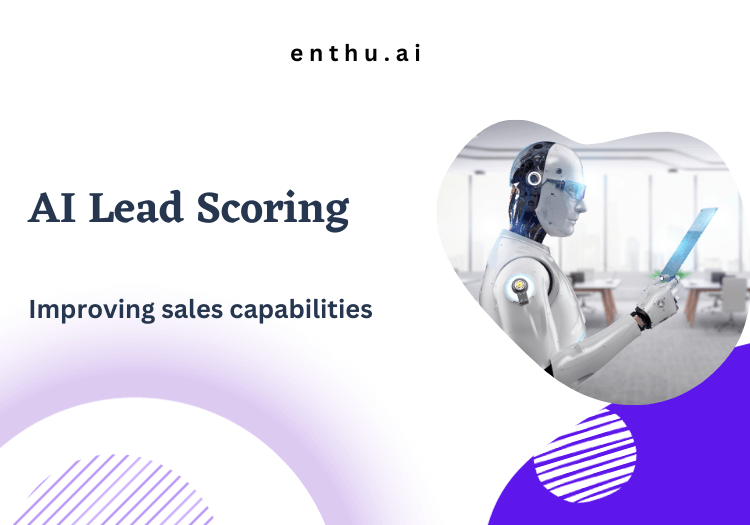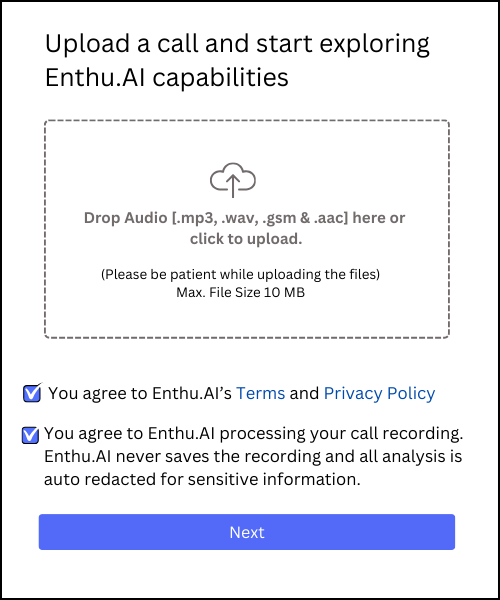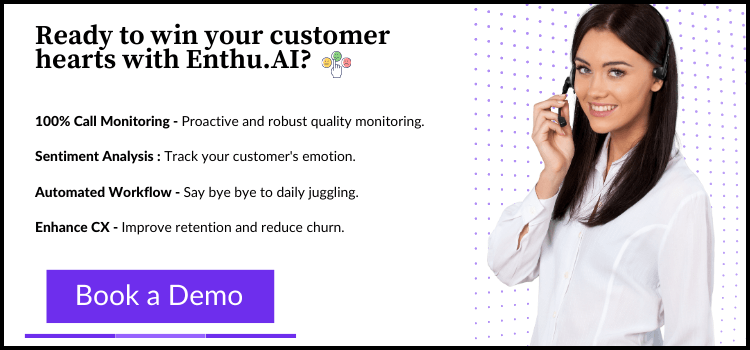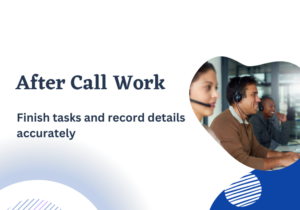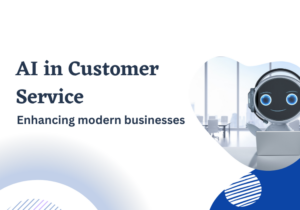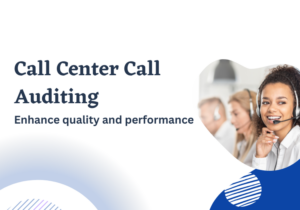Discover how AI lead scoring is changing the way contact centers assess and prioritize their leads.
Artificial intelligence is transforming the landscape of businesses of every type and size worldwide.
If you’re operating a contact center or a business deeply ingrained in customer service, chances are you’ve been using conventional methods of lead scoring.
However, it’s time to ask yourself – is there a better way?
AI isn’t just about efficiency and productivity gains, or even about improving the speed of business operations.
In this guide, you’ll find:
- What is AI lead scoring?
- Traditional vs AI lead scoring.
- Benefits of AI lead scoring.
- How to get started with AI lead scoring.
It’s a game-changer that opens doors to entirely new capabilities and business model expansions.
With AI, you can provide your customers with personalized services and experiences, making your business stand out in a crowded marketplace.
But did you know that AI can revolutionize lead generation too?
In today’s post, we’ll explore how using conversation AI helps contact centers like yours to get more leads.
Following these tips will help you improve your lead conversion rates and get more customers for your business.
A. What is AI lead scoring?
AI lead scoring is a cutting-edge application of artificial intelligence (AI), machine learning, and big data in contact centers.
It involves the use of specialized lead-scoring software that analyzes customer interactions and conversation data.
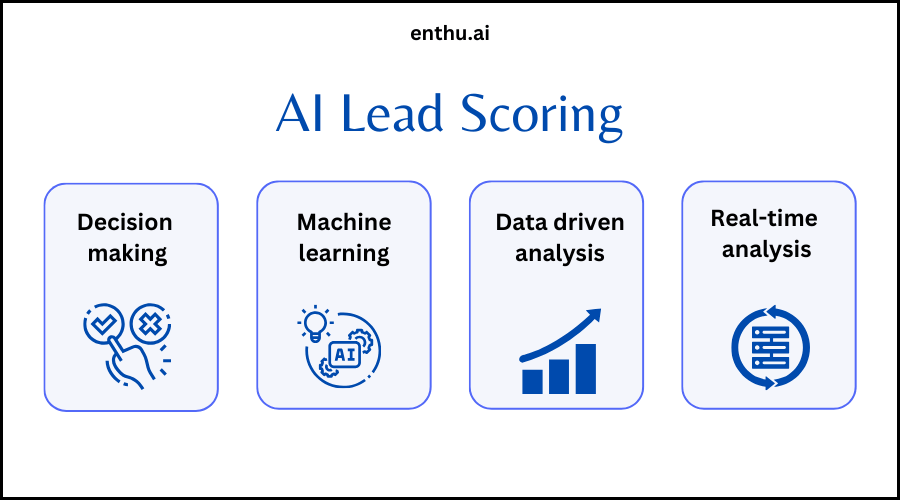
This technology assigns a score to leads based on various factors, such as the quality of the conversation, customer behavior, and historical data.
In the present day, modern businesses extensively rely on AI lead scoring to identify potential customers with a higher likelihood of converting into paying clients.
Let’s say a customer, John, calls your contact center with a question about a product.
AI lead scoring software instantly recognizes that John’s tone is positive, he’s expressed interest in purchasing, and he’s a returning customer who’s previously made purchases.
The AI assigns a high score to this lead, indicating that John is highly likely to make a purchase.
This happens in real-time, allowing your team to promptly direct John to a skilled agent or offer personalized recommendations, greatly enhancing the chances of turning this lead into a sale.
That’s the magic of AI lead scoring in action.
It’s like having a super-efficient, tireless assistant ensuring that your most promising leads are identified and nurtured, all while improving your customer service.
B. Traditional vs. AI lead scoring
Traditional lead scoring involves a lot of thinking, analyzing, and a bit of luck to figure out which leads are likely to become customers.
It can be time-consuming and might not always be accurate because it depends on people’s judgments.
On the other hand, AI lead scoring collects data from various sources and does a lot of the work for you.
It figures out what your ideal customer looks like and identifies the things that show someone is likely to become a customer.
Here’s a more detailed table illustrating the differences between traditional lead scoring and AI lead scoring.
| Aspect | Traditional lead scoring | AI lead scoring |
| Manual effort | Involves significant manual analysis and human judgment. | Automates many aspects, reducing the need for manual effort. |
| Accuracy | Accuracy can vary due to subjectivity and human biases. | Typically provides higher accuracy through data-driven analysis. |
| Adaptability | Often inflexible when business priorities or markets change. | Can face challenges in adapting if business directions shift without adjustments. |
| Efficiency | Time-consuming, leading to slower lead assessment. | More efficient, offering real-time analysis for quicker lead evaluation. |
| Data preparation | Usually doesn’t emphasize data preparation, potentially causing issues. | Requires thorough data preparation and alignment with specific business objectives. |
| Scalability | Less scalable as it relies on manual efforts and human resources. | Highly scalable, capable of handling large volumes of leads efficiently. |
| Consistency | Inconsistent results due to the subjectivity of manual assessment. | Offers more consistent results as it follows predefined algorithms. |
| Response time | Response times can be slow as leads require manual evaluation. | Speeds up response times by automating lead assessment and prioritization. |
| Real-time insights | Provides limited real-time insights into lead quality. | Offers real-time insights, aiding immediate decision-making. |
| Cost-efficiency | Often less cost-efficient due to the labor-intensive nature of manual scoring. | Tends to be more cost-efficient as it reduces manual labor costs. |
Remember, just throwing data into an AI or any speech analytic system and hoping for the best isn’t the way to go.
You should prepare the data, make sure it fits your goals (like getting more enterprise-level leads and sales), and be cautious about relying entirely on the AI without checking on it from time to time.
C. Benefits of AI lead scoring
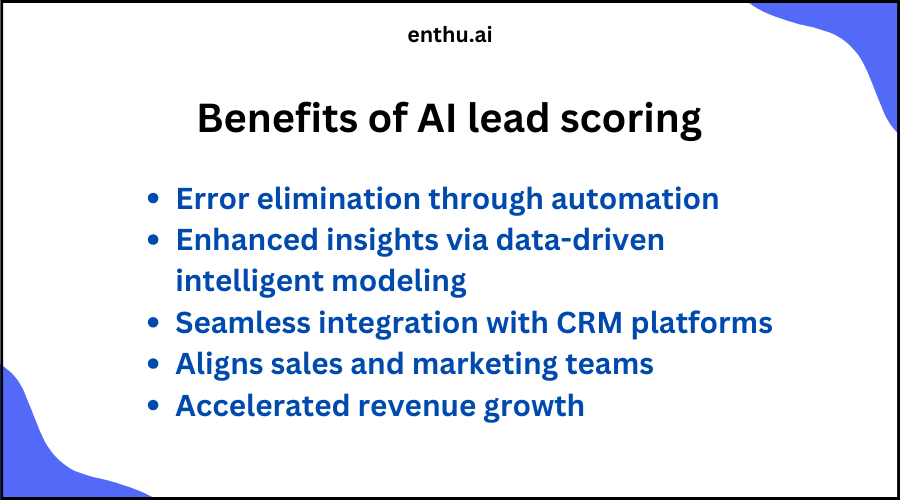
1. Error elimination through automation
Human error is an inherent part of manual processes, including traditional lead scoring. AI lead scoring minimizes this risk by relying on data-driven analysis and algorithms.
AI Speech analytics eliminates the possibility of errors caused by fatigue, subjectivity, or inconsistencies in human judgment.
AI ensures that leads are assessed consistently and accurately, reducing the chances of valuable opportunities being missed or less promising leads being pursued.
2. Enhanced insights via data-driven intelligent modeling
AI lead scoring thrives on data. It processes vast amounts of data from various sources, such as customer interactions, historical information, and demographic details.
This depth of analysis surpasses what manual methods can achieve, providing a comprehensive and nuanced understanding of leads and their potential.
3. Seamless Integration with CRM Platforms
Integration platforms like Customer Relationship Management (CRM) and speech analytics is a significant advantage of AI lead scoring.
It seamlessly works with your CRM system, ensuring that lead scores and information are readily available to your sales and marketing teams.
This integration streamlines workflows, enabling teams to access lead data, insights, and scoring in a unified environment.
This not only improves efficiency but also helps teams make data-informed decisions for lead nurturing and conversion.
4. Align sales and marketing teams
One of the persistent challenges in business is the misalignment between sales and marketing departments. AI lead scoring bridges this gap.
This alignment results in smoother lead handoffs from marketing to sales, leading to more effective and coordinated efforts in converting leads into paying customers.
5. Accelerated revenue growth
At the heart of lead scoring’s purpose is revenue growth. AI lead scoring’s ability to accurately identify the most promising leads results in higher conversion rates.
By focusing efforts on leads with a higher likelihood of converting, businesses can optimize their resources and time.
This, in turn, leads to increased sales and revenue growth. AI’s precision in targeting the right leads means more successful sales interactions and, ultimately, improved financial outcomes.
D. How to get started with AI lead scoring?
To get started with AI lead scoring, you need to choose a reliable AI lead scoring system or software.
Ensure that it integrates seamlessly with your existing contact center technology or CRM.
Next, define the criteria you want the AI system to use for lead scoring.
These criteria could include conversation quality, customer sentiment, and historical data.
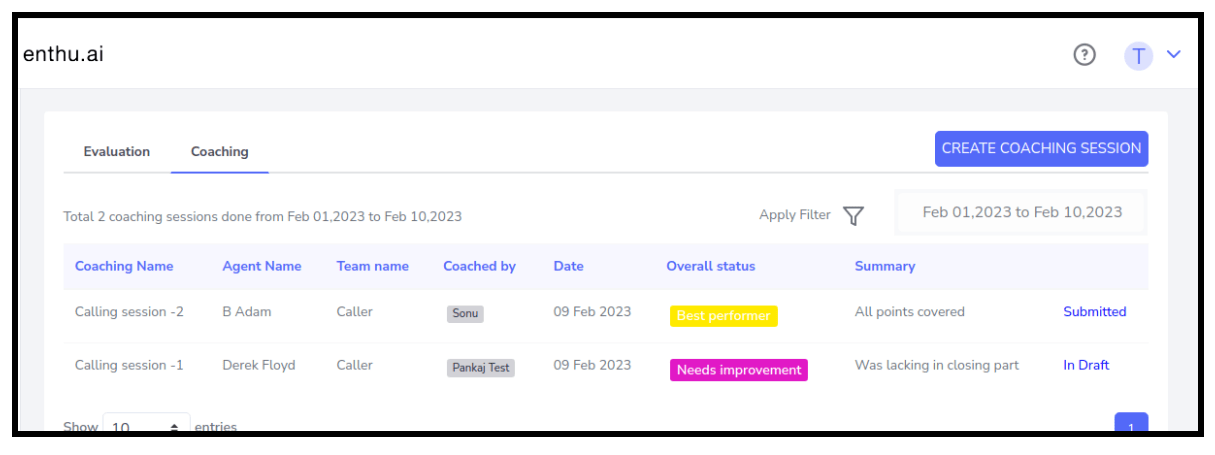
Train your team to use the system effectively and monitor its performance regularly.
If you’re looking for the most advanced and feature-rich AI lead-scoring software, consider using Enthu. AI.
Enthu.AI is a sought-after conversation intelligence software that not only helps contact centers with AI lead scoring but offers several other advanced features.
This includes speech analytics, call monitoring, agent coaching & training, quality assurance, compliance, and more.
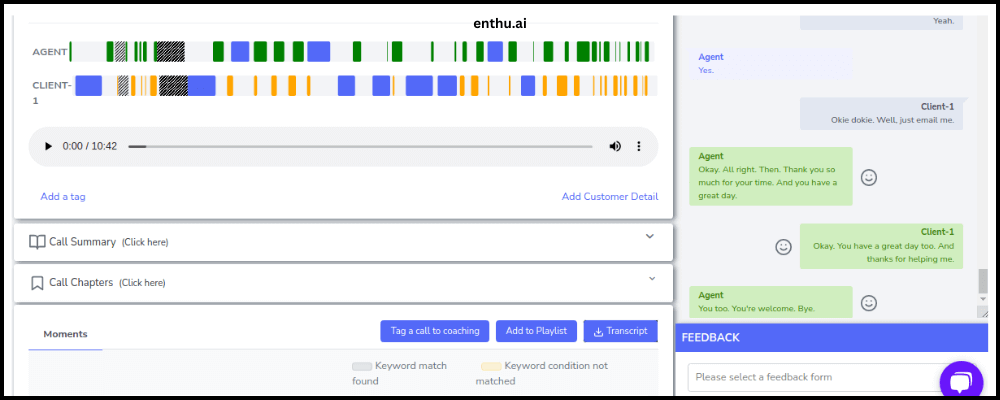
E. Conclusion
In a nutshell, you’ve explored the world of lead scoring, learned what it is, its many advantages, and how to put it into action.
If you’re running a modern contact center or a business that’s all about serving customers, AI lead scoring is your golden ticket to succeed in this era powered by AI.
Customers now expect more, and competition is fierce.
To rise to these challenges, you don’t just follow the future; you lead the way.
AI lead scoring is your route to success, making things work better, faster, and ensuring that customers are delighted.
So, let your contact center be the trailblazer for fresh ideas.
Embrace AI lead scoring, and let your business shine as a symbol of excellence in the customer service world.
The future is already here, and it’s your time to be the leader with AI lead scoring.
FAQs
Q1: Can AI lead scoring be customized to our specific business needs?
Yes, AI lead scoring systems can be tailored to your unique requirements. You can define the criteria and parameters that matter most to your business, ensuring that the system aligns with your objectives.
Q2: How does AI lead scoring improve conversation quality?
AI lead scoring uses speech analytics to assess conversations. It can identify the tone, sentiment, and keywords used in interactions. This information helps agents provide more personalized and effective customer service.
Q3: Is AI lead scoring suitable for small businesses with limited resources?
Absolutely. AI lead scoring offers efficiency gains and helps businesses make the most of their resources. It can be a cost-effective solution for businesses of all sizes, leading to better lead management and conversion rates.
